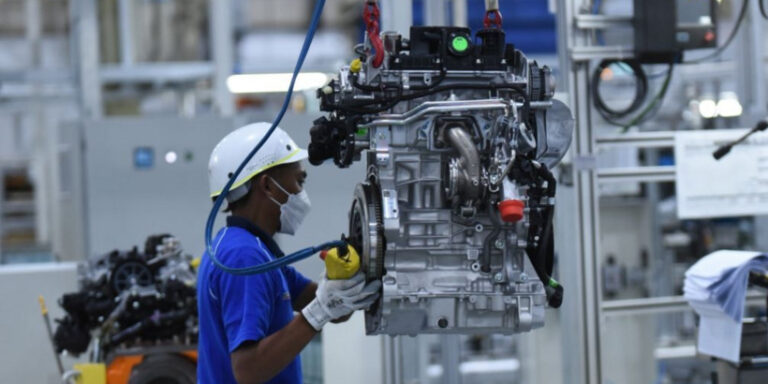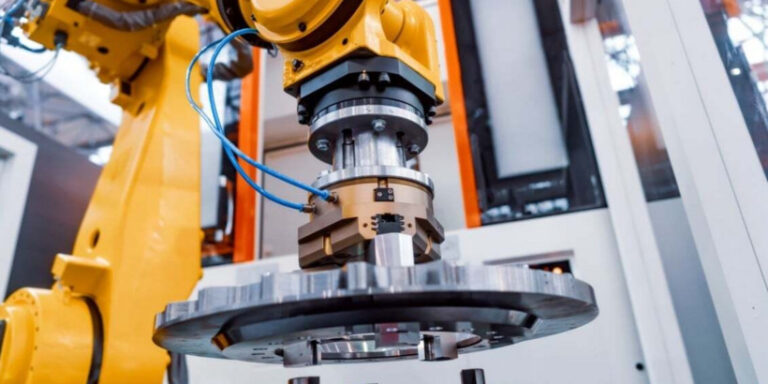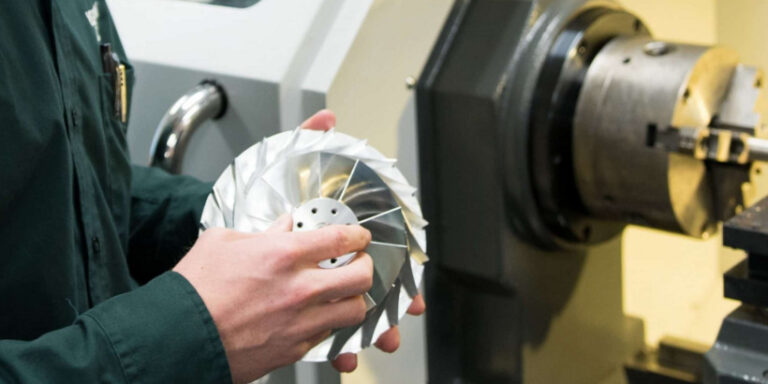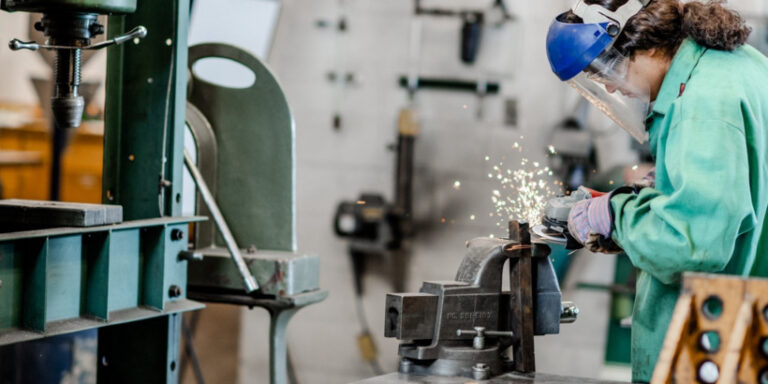The Impact Of 5g Technology On Mechanical Engineering
Hey there! Have you heard about the buzz around 5G technology? It’s been a hot topic of discussion for quite some time now and has already started making significant waves in various industries. As a mechanical engineer, I am particularly excited to see how this revolutionary technology will impact my field.
The fifth-generation wireless network, or simply 5G, is set to revolutionize the way we live our lives. With faster speeds, lower latency, and higher bandwidth than its predecessors, it promises to transform not just the telecommunications industry but also many other areas such as healthcare, transportation, and education.
But what does all this mean for mechanical engineering? In this article, I’ll explore how 5G technology will change the face of mechanical engineering and what implications it holds for engineers like me.
So buckle up and let’s dive into the exciting world of 5G!
Table of Contents
Enhanced Connectivity
5G technology is like a refreshing breeze that blows through the world of mechanical engineering, bringing with it new possibilities and opportunities.
With improved scalability and enhanced compatibility, this cutting-edge technology has opened up doors to an era where connectivity is king.
It’s as if 5G has injected life into machines, making them more responsive and efficient than ever before.
As a mechanical engineer myself, I have seen how 5G has revolutionized communication between machines, allowing for seamless interactions regardless of their location or distance from each other.
This enhanced connectivity paves the way for smarter factories that can operate at peak efficiency while reducing downtime significantly.
The future looks bright thanks to 5G!
Improved Efficiency
Improved Efficiency
With the advent of 5G technology, mechanical engineering is set to undergo a significant revolution. One key area that will be particularly impacted by this new technology is the efficiency of mechanical design and production processes.
The faster transfer speeds enabled by 5G networks mean that large amounts of data can now be quickly transmitted between teams and systems, leading to faster prototyping and shorter time-to-market cycles.
Additionally, virtual monitoring technologies are being developed that allow engineers to remotely monitor and control machinery in real-time, reducing downtime and increasing overall productivity.
As such, we can expect to see significant improvements in the speed and quality of mechanical engineering projects as 5G continues to roll out across industries.
The future of mechanical engineering looks bright with these advancements on the horizon!
Increased Automation
Improved efficiency due to 5G technology is just the tip of the iceberg. I know what you’re thinking – “How much better can it get?” Well, let me tell you, increased automation is going to revolutionize mechanical engineering even further. With remote monitoring capabilities, machines and equipment can be monitored from anywhere in the world with little to no delay. This means that engineers can keep an eye on their projects at all times, ensuring optimal performance and minimizing downtime. Additionally, faster prototyping allows for more iterations of designs, leading to faster product development cycles and ultimately a quicker time-to-market. To really drive home the point of how impactful this will be, take a look at this table:
| Without 5G | With 5G |
|---|---|
| Limited remote monitoring options | Unlimited remote monitoring capabilities |
| Slow prototyping cycles | Rapid prototyping iterations |
I don’t think I need to say much more than that – the benefits speak for themselves. The possibilities are endless when we combine improved efficiency with increased automation powered by 5G technology.
Safer Design And Manufacturing
I’m really interested in exploring the impact of 5g technology on mechanical engineering for safer design and manufacturing. I’m particularly keen to see how improved quality assurance, enhanced automation, and reduced human error could be enabled by the increased speed and bandwidth of 5g. Let’s dive into these areas and see what opportunities 5g could bring!
Improved Quality Assurance
Hey guys!
You know what’s really exciting about the impact of 5G technology on mechanical engineering?
Well, it has led to improved quality assurance in safer design and manufacturing processes.
With faster prototyping capabilities, engineers can now create prototypes quickly and efficiently without wasting too much time or money.
This means that they are able to test out their designs multiple times before finalizing them for production.
As a result, this leads to lower costs as potential issues can be detected early on in the process, thus reducing the need for expensive rework later down the line.
It is clear that with such advancements brought forth by 5G technology, we can expect even greater improvements in quality assurance across all industries in the future.
Enhanced Automation
Now, let’s dive deeper into how 5G technology has enhanced automation in mechanical engineering.
With the availability of adaptive control and predictive analysis tools, manufacturers can now optimize their production processes in real-time. This means that machines are able to automatically adjust their settings based on current conditions, resulting in increased efficiency and reduced downtime.
Furthermore, with the ability to collect and analyze vast amounts of data through sensors and internet-connected devices, engineers can identify potential issues before they even occur, allowing for proactive maintenance measures to be taken.
The integration of such advanced automation technologies undoubtedly improves safety by reducing human error while also increasing productivity within manufacturing plants.
It is exciting to see what possibilities lie ahead as we continue to push the boundaries of technological advancements in this field.
Reduced Human Error
Now, let’s talk about how 5G technology has contributed to safer design and manufacturing by reducing human error.
With real-time tracking and enhanced accuracy of machines, the risk of accidents caused by manual errors is greatly reduced.
For instance, sensors in production lines can detect abnormalities and halt operations before any damage occurs.
Additionally, automated systems ensure that products meet quality standards consistently without human interference, minimizing defects or recalls due to oversight.
It’s incredible how advanced automation technologies have revolutionized the way we approach safety in mechanical engineering.
But this is just one aspect of it; there are still more possibilities for innovation on the horizon!
More Secured Data Transmission
When it comes to data transmission, security is of utmost importance. With the introduction of 5G technology in mechanical engineering, we can expect more secured data transmission than ever before.
Thanks to faster data delivery and reduced latency, sensitive information can be transferred quickly and efficiently without compromising its safety. This means that engineers can rely on 5G networks to transmit crucial data between machines and devices with complete peace of mind.
The enhanced security features offered by 5G will undoubtedly revolutionize how mechanical engineering operates in the future – making it even more efficient and reliable.
Enhanced Collaboration
Enhanced Collaboration
With the introduction of 5G technology, mechanical engineering is set to experience a significant boost in collaboration. Enhanced communication capabilities will allow for seamless interaction between team members regardless of their physical location.
The advent of virtual reality also promises to revolutionize how teams collaborate by allowing them to work together in a shared digital space. Imagine being able to design and test products with teammates from different parts of the world without ever having to leave your office.
This level of collaboration has previously been hindered by slow internet speeds and limited bandwidth. With 5G, however, these barriers are effectively eliminated, paving the way for new levels of productivity and innovation.
Virtual reality takes this even further by creating immersive environments where teams can interact with each other and with designs in real-time. This not only facilitates better teamwork but also allows engineers to identify potential issues earlier on in the development process, reducing time-to-market and overall costs.
The future of mechanical engineering lies in enhanced collaboration enabled by 5G technology. As we continue to harness its power, we can expect groundbreaking advances that will transform industries across the board.
Improved Maintenance And Diagnostics
Okay, let me tell you something.
5G technology has completely revolutionized the mechanical engineering industry in ways we never thought possible.
And one of the most significant improvements is in maintenance and diagnostics.
With real-time monitoring and predictive maintenance capabilities, engineers can now detect potential issues before they become major problems, saving time, money, and even lives.
Think about it – no more unexpected shutdowns or costly repairs that could have been prevented with a simple check-up.
The use of 5G technology ensures that machines are always operating at peak performance levels while minimizing downtime due to unforeseen circumstances.
This means better productivity for businesses and safer working conditions for employees.
It’s truly amazing how much simpler our jobs have become thanks to this game-changing innovation!
Conclusion
In conclusion, the impact of 5G technology on mechanical engineering cannot be overstated. The enhanced connectivity and improved efficiency that it brings to the table are just some of its many benefits.
With increased automation, we can expect a more streamlined manufacturing process that is both cost-effective and time-efficient. Moreover, the safer design and manufacturing practices enabled by 5G will ensure that products are built with precision and accuracy while minimizing risks to workers. And let’s not forget about data security – with more secured transmission of information, we can rest assured knowing that all our sensitive data is safe from prying eyes.
Finally, collaboration between engineers across geographical locations will become easier than ever before thanks to 5G technology. Improved maintenance and diagnostics will also help in identifying issues early on, leading to quicker resolutions and less downtime.
In short, as 5G continues to evolve, so too will the field of mechanical engineering – allowing us to push boundaries like never before!






